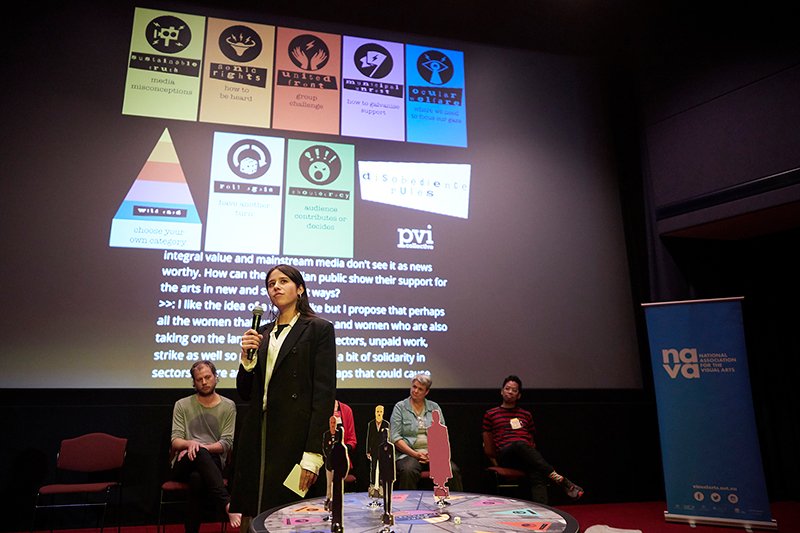The National Association for the Visual Arts (NAVA) acknowledges the Gadigal, Wangal, Dharug, Dharawal, and Dja Dja Wurrung peoples as the Traditional Owners, Custodians and knowledge-holders of the unceded lands on which current NAVA staff live, learn and work.
The NAVA Board, and artists whom we represent are based across hundreds of sovereign nations and unceded lands throughout the continent that has become colonially known as Australia.
We acknowledge Aboriginal and Torres Strait Islander peoples as the first artists and storytellers on this continent, and pay respect to First Nations communities' ancestors and Elders.
This always was, and always will be Aboriginal land.
First Nations peoples should be aware that this website may contain images, voices and names of people who have passed away.







